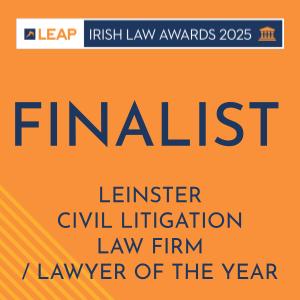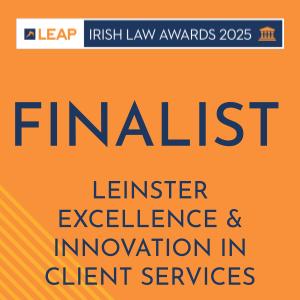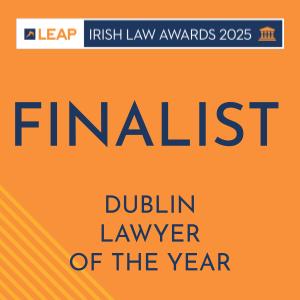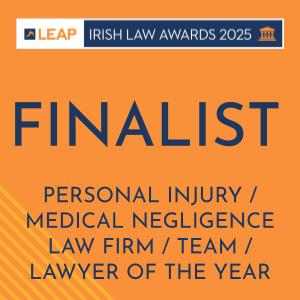The High Court
In 2022, the High Court approved of two separate autism related birth injury cases. In recent years, the High Court has also approved of birth injury settlements involving children with cognitive difficulties, behavioural difficulties, and sensory issues. Due to alleged failures in care at the time of their births, these children suffered from a type of brain injury called neonatal encephalopathy, and they face ongoing challenges.
The multimillion Euro settlements flow from emerging medical research which link some forms of neurodivergence and cognitive issues, with hypoxia at birth and neonatal encephalopathy.
The HSE has not yet admitted liability in any of these cases, however, the value of the recent out-of-court settlements may be evidence alone that the HSE are at least partially accepting of the medical publications.
Medical Studies
Over the last 15 years in particular, medical researchers have examined the cognitive functioning, neuropsychological functioning, behaviour, and educational attainments of children who suffered from encephalopathy at the time of their birth. In general, the studies have shown that infants who suffered from neonatal encephalopathy are at an increased risk of having some of the following difficulties;
- Neurodivergence, including Autism & ADHD
- Behavioural difficulties
- Sensory difficulties
- Cognitive impairment
- Memory difficulties
- Decreased school readiness
- Motor impairments
- Balance & coordination difficulties
1988: A study dating back to 1988, demonstrated an increased symptoms of explosiveness and irritability in children with moderate encephalopathy at 5½ years old.
It was also noted that children with a history of moderate and severe neonatal encephalopathy are at an increased risk for future academic failure, and a significantly increased risk of ADHD and ASD. (Robertson and Finer[1]).
2022: Moster et al[1] discusses anxiety, aggression, and attention difficulties in infants with moderate neonatal encephalopathy.
2005: Marlow et al[1] found that infants with moderate neonatal encephalopathy had abnormalities with attention, memory, and executive functioning.
2006: Badawi et al[1] demonstrated an association between neonatal encephalopathy and autism.
Lindström et al[2] found that cognitive/executive impairments interfered with daily life in teenagers who had had neonatal encephalopathy.
2007: Van Handel et al[1] discuss that in all areas examined, the outcome of children with mild neonatal encephalopathy is consistently positive and the outcome of children with severe neonatal encephalopathy consistently negative.
They note that some studies suggest increased rates of hyperactivity and autism in children with moderate neonatal encephalopathy.
2009: De Vries and Cowan[1] noted that long term follow up of infants with HIE (hypoxic ischaemic encephalopathy) identified cognitive and memory deficits, even if there were no motor deficits.
2016: Ahearn et al[1] found that the long-term outcomes for infants with neonatal encephalopathy can include: poor attention, explosive behaviour, hyperactivity, and an increased risk of ASD, an increased risk of psychotic symptoms, irritability, decreased school readiness, memory and attention/executive impairments.
Positive Outcomes
Case 1: €950,000 interim settlement for child with neurobehavioral and neurosensory difficulties. McMahon Goldrick Solicitors acted on behalf of a young boy with neuropsychology issues. He suffered oxygen deprivation at birth and was diagnosed with hypoxic ischaemic encephalopathy.
Our case: There was a failure to respond quickly when the infant’s heart rate dropped, and failure to deliver the infant via caesarean section. Due to the large uncertainty regarding the boy’s long-term prognosis, an interim payment €950,000 was made, and the full assessment of damages case will be heard in 8 years’ time. See link to read more about this case: https://rmcm.ie/success-story/e950000-interim-settlement-for-child-with-neurosensory-and-neurobehavioral-difficulties/
Case 2: €10M settlement for 8-year-old child with autism. He suffered hypoxia at birth (oxygen deprivation) and there was a failure to diagnose hypoglycaemia. See link to read more about this case (https://www.rte.ie/news/courts/2022/1014/1329240 birth-settlement/)
Case 3: €15M settlement for teenagers with autism. There was an alleged failure to respond to maternal evidence of infection as a factor in treating the baby with antibiotics and a failure to rule out meningitis. See link to read more about this case (https://www.rte.ie/news/courts/2022/1025/1331358-coombe-hospital-apology/)
Specialist Birth Injury Solicitors
McMahon Goldrick Solicitors specialises in acting on behalf of children who have sustained birth injuries caused by medical negligence. In fact, we are the only firm in Ireland to exclusively specialise in representing clients who have sustained birth, brain & spinal injuries.
Due to the specialist nature of the firm, we have established excellent connections with obstetric, neonatal, and neurology consultants, who are leaders in their respective fields, and some of whom are at the forefront of linking neurodivergence with birth trauma.
We understand the toll that birth trauma can have on a family, so it is always our pleasure to assist a parent or guardian with exploring whether it might be possible to obtain compensation to help their child live a more fulfilling and independent life.
If you have an enquiry regarding a possible birth injury case, please feel free to call or email Ralph McMahon or Grace Carroll at +353 1 6770044 and info@rmcm.ie
For more information on instructing a solicitor for a birth injury compensation claim visit, https://rmcm.ie/birth-injury-solicitors/
______________________________________________________________________
[1] https://pubmed.ncbi.nlm.nih.gov/2976068/
[2] https://pubmed.ncbi.nlm.nih.gov/11815542/
[3] https://pubmed.ncbi.nlm.nih.gov/16113154/
[4] https://pubmed.ncbi.nlm.nih.gov/16417661/
[5] https://pubmed.ncbi.nlm.nih.gov/16996401/
[6] https://pubmed.ncbi.nlm.nih.gov/17426984/
[7] https://pubmed.ncbi.nlm.nih.gov/19945656/
[8] https://pubmed.ncbi.nlm.nih.gov/26862504/
[9] https://pubmed.ncbi.nlm.nih.gov/28099978/
[10] https://pubmed.ncbi.nlm.nih.gov/29063960/




